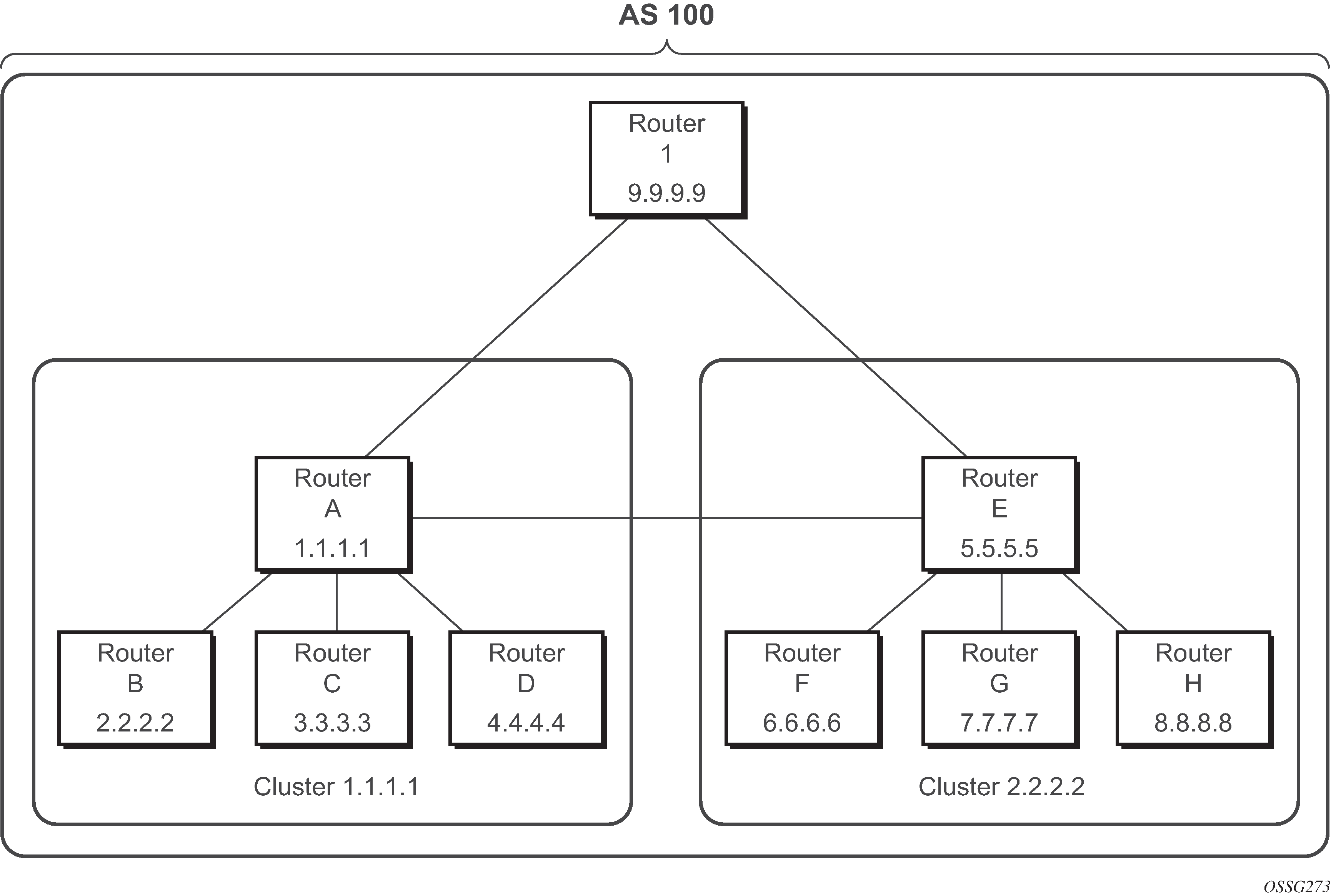In a standard BGP configuration, all BGP speakers within an AS must have a full BGP mesh to ensure that all externally learned routes are redistributed through the entire AS. IBGP speakers do not re-advertise routes learned from one IBGP peer to another IBGP peer. If a network grows, scaling issues could emerge because of the full mesh configuration requirement. Route reflection circumvents the full mesh requirement but still maintains the full distribution of external routing information within an AS.
Autonomous systems using route reflection arrange BGP routers into groups called clusters. Each cluster contains at least one route reflector which is responsible for redistributing route updates to all clients. Route reflector clients do not need to maintain a full peering mesh between each other. They only require a peering to the route reflector(s) in their cluster. The route reflectors must maintain a full peering mesh between all non-clients within the AS.
Each route reflector must be assigned a cluster ID and specify which neighbors are clients and which are non-clients to determine which neighbors should receive reflected routes and which should be treated as a standard IBGP peer. Additional configuration is not required for the route reflector besides the typical BGP neighbor parameters.

The following configuration displays the minimum BGP configuration for routers in Cluster 1.1.1.1 described in Figure: Route reflection network diagram example.
ALA-A
config router bgp
group cluster1
peer-as 100
cluster 1.1.1.1
neighbor 2.2.2.2
exit
neighbor 3.3.3.3
exit
neighbor 4.4.4.4
exit
exit
group RRs
peer-as 100
neighbor 5.5.5.5
exit
neighbor 9.9.9.9
exit
exit
exit
ALA-B
config router bgp
group cluster1
peer-as 100
neighbor 1.1.1.1
exit
exit
exit
ALA-C
config router bgp
group cluster1
peer-as 100
neighbor 1.1.1.1
exit
exit
exit
ALA-D
config router bgp
group cluster1
peer-as 100
neighbor 1.1.1.1
exit
exit
exit